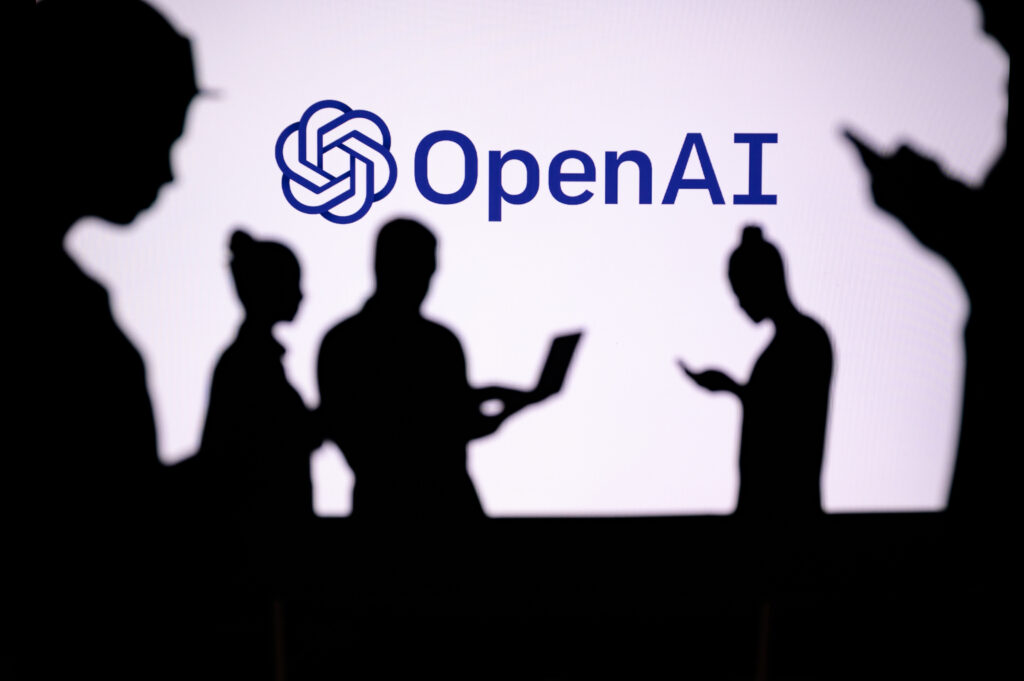Now, we encounter a pivotal moment as OpenAI unveils its revolutionary new search engine. Powered by cutting-edge AI, this groundbreaking development promises to reshape how we discover and interact with online information. With contextual awareness and intuition beyond traditional search, it challenges established players like Google and Bing. Across the Asia-Pacific landscape, interest stirs around its emergence. We ponder its implications for data privacy and information accuracy. The unveiling highlights OpenAI’s ascendance, showcasing rapid AI advancement. As we stand at the cusp of a new era in search, this engine may profoundly impact how you find and consume digital content.
OpenAI Unveils Revolutionary New AI Search Engine
OpenAI, a leading AI research company, has unveiled a groundbreaking new search engine powered by advanced natural language processing models. This innovative search engine provides a more intuitive search experience by understanding complex queries and retrieving the most relevant information to satisfy the user’s needs.
Contextual Understanding
- The search engine leverages state-of-the-art language models that have been trained on massive datasets to develop a contextual understanding of search queries. It can grasp the nuances and intent behind ambiguous or complex queries that traditional keyword-based search engines struggle with. For example, if a user searches for “red apple,” the search engine will understand that the color red modifies the apple and return results for the fruit. This contextual comprehension allows for a more seamless search experience.
Personalized Results
- OpenAI’s search engine also incorporates personalization to tailor results to individual users. By analyzing search histories and interactions, the search engine builds a model of the user’s interests and preferences to provide the most pertinent results for each query. For example, if a user frequently searches for information on machine learning, the search engine will prioritize results related to that topic. The search engine aims to become more customized to users’ needs over time through continued use.
Transparency and Bias Mitigation
- OpenAI has focused on developing interpretability, transparency, and bias mitigation techniques to apply to their AI systems. Their new search engine is designed with mechanisms to explain why certain results are returned for a given query. OpenAI is also working to address issues of unfairness or inappropriate content in the search results. By building safeguards into their AI models and search algorithms, OpenAI hopes to avoid concerns over data privacy and algorithmic bias that have been raised with other tech companies.
The unveiling of OpenAI’s innovative new search engine promises to transform how we discover and access information online. With continued progress, AI will shape our digital experiences in increasingly impactful ways. OpenAI’s cutting-edge work represents an important step toward realizing the potential benefits of AI while upholding principles of transparency and ethics.
Key Features of OpenAI’s Groundbreaking Search Technology

OpenAI’s new search engine incorporates several innovative features powered by advanced neural networks and deep learning algorithms. A Customized Search Experience The search engine provides personalized results based on a user’s search history and interactions. It understands the context and intent behind queries, delivering tailored responses that match individual needs and interests. For example, the same search terms entered by two different users may yield different results depending on their respective search histories.
Natural Language Processing
- The search engine leverages state-of-the-art natural language processing to understand the semantic meaning of queries, rather than just matching keywords. It can handle complex questions and commands, interpreting them with human-like comprehension. This enables more intuitive and conversational interactions between humans and AI.
Transparency and Explainability
- OpenAI’s search engine provides explanations for its results, outlining why particular responses were selected. This helps build trust in the system and gives users insight into how the AI is functioning. The search engine’s algorithms can describe in simple terms the reasoning process behind any search outcome.
A Responsible and Ethical Framework
- OpenAI has implemented strict guidelines and oversight to ensure its search technology is applied in a responsible, ethical manner. The system is designed to avoid biases and filter out misleading information, providing trustworthy results supported by credible sources. OpenAI also has an open review process allowing experts to analyse the search engine’s algorithms and outcomes.
OpenAI’s groundbreaking search tool demonstrates the vast potential of AI to transform how we discover and access information online. By combining cutting-edge natural language processing with a responsible, human-centered approach, this new technology could significantly enhance our interactions with the digital world. The unveiling of OpenAI’s innovative search engine marks a pivotal moment in the development of AI that is both highly capable and rigorously governed.
How OpenAI’s AI Search Engine Differs From Traditional Search
Advanced Natural Language Understanding
- OpenAI’s new search engine utilizes state-of-the-art natural language processing models to understand the semantic meaning and contextual nuances of user queries. Unlike traditional search engines that rely on keywords and popularity metrics, OpenAI’s AI search engine comprehends the intent and contextual relationships within search queries to provide more relevant results. For example, if a user searches for “apple stock price,” the AI search engine will understand that the query refers to the stock price of Apple Inc., rather than general information about apples as fruit. This advanced natural language understanding allows for an intuitive search experience that produces tailored results for each unique search query.
Personalized and Context-Aware Results
- OpenAI’s AI search engine generates customized search results based on a user’s search history and interests. The search engine studies patterns in a user’s previous searches and clicks to build a profile of their interests and preferences over time. When a user conducts a new search, the AI search engine factors in this personal profile to provide results it anticipates will be most relevant and interesting to that particular user. Search results are also assembled based on the overall context of a user’s search query, rather than relying on keywords alone. This personalized, context-aware approach allows the AI search engine to supply uniquely tailored results for each individual user.
Transparency and Bias Mitigation
- OpenAI has focused on building transparency and safeguards against bias in its AI search engine. The natural language models underpinning the search engine have been carefully audited to minimize the influence of unfair attributes like gender, ethnicity, or socioeconomic status on search results. OpenAI also provides explanations for why certain search results were produced, allowing users to understand how the AI search engine interpreted their query. This emphasis on transparency and bias mitigation helps address concerns about the objectivity and trustworthiness of AI technologies. Overall, OpenAI’s new AI search engine points to a future of more personalized, unbiased, and transparent search experiences.
The Future of Information Discovery: Implications of OpenAI’s Launch
The unveiling of OpenAI’s innovative search engine signals a new frontier in how people discover and access information online. Powered by advanced AI, the search engine provides an enhanced experience tailored to users’ needs and contexts.
Personalized and Contextual Search
- The search engine leverages natural language processing to understand the meaning and intent behind users’ queries. It can discern contextual nuances and semantic relationships to deliver results that are personalized and relevant. For instance, a search for “apple” would yield results related to the tech company, the fruit, or other contexts depending on the user’s interests and previous searches. This level of personalization and context-awareness could transform people’s search interactions.
Privacy and Bias Considerations
- While promising, OpenAI’s search engine also raises important questions about data privacy and algorithmic bias. The search engine has access to huge amounts of personal data which could be vulnerable to privacy breaches or misuse. There are also concerns about whether the algorithms could reflect and even amplify the biases of its training data. OpenAI will need to ensure strong privacy protections and address these critical issues to gain public trust.
The Future of Search
- The launch of OpenAI’s search engine is poised to disrupt the search industry and accelerate the development of AI technologies. It demonstrates the vast potential of natural language processing and personalization to create more intuitive search experiences. However, search engines also shape how people access and consume information. OpenAI’s solution may impact how users filter and prioritize information, and in turn, influence their knowledge and beliefs.
Overall, OpenAI’s unveiling highlights both the promise and perils of AI-based search in the digital age. With prudent management and oversight, AI could make search smarter, contextual, and customized to serve the diversity of human needs and interests. But we must be vigilant and thoughtful about how these powerful technologies are built and applied. The future of search depends on it.
FAQs on OpenAI’s New AI-Powered Search Engine
1. How does OpenAI’s search engine work?
- OpenAI’s new AI-powered search engine utilizes sophisticated neural networks to understand the intent and context behind user queries. It then trawls through billions of web pages to find the most relevant results. Unlike traditional search engines that rely on keywords and hyperlinks, OpenAI’s search engine understands natural language and the concepts and relationships between words. This allows it to provide more intuitive results even for complex or vague search queries.
2. What are the benefits of OpenAI’s search engine?
- OpenAI’s AI-powered search engine offers several advantages over traditional search engines. Firstly, it provides a more natural search experience by understanding the meaning and intent behind user queries rather than simply matching keywords. This allows for more contextual and personalized results even for ambiguous search terms. Secondly, it helps address the issue of “filter bubbles” by exposing users to a wider range of diverse and relevant information from across the web. Finally, it has the potential to significantly improve the accuracy and credibility of search results through its advanced understanding of language and concepts.
3. What are some concerns regarding OpenAI’s search engine?
- While OpenAI’s new search engine is a technological breakthrough, it also raises important questions about data privacy, algorithmic bias, and information accuracy. There are concerns about the massive amounts of user data required to train the neural networks that power the search engine. There are also concerns about how the algorithms may reflect and even amplify the biases inherent in this data. Finally, there are concerns regarding the credibility and factuality of the search results, especially given the search engine’s reliance on web data which varies widely in accuracy and reliability. Ongoing research and audits will be required to address these issues.
Overall, OpenAI’s new AI-powered search engine represents an exciting development with significant implications for how we discover and access information. If leveraged and regulated responsibly, it could transform the search experience and help promote a more open and enlightened society. However, continuous efforts will be needed to ensure its safe, fair, and trustworthy operation.
To Summarize…
You hold in your hands the key to unlocking a wealth of information. This new search engine by OpenAI puts you in the driver’s seat, empowering you to navigate oceans of data with ease. The unveiling of this revolutionary technology opens new horizons, but its future depends on you. How will you wield this power to shape society for the better? The possibilities stretch as far as your imagination. Tread carefully, but boldly, into this new frontier of discovery.
More Stories
Samsung’s AI Power Play: Perplexity Partnership Signals Shift from Google
Samsung is poised to redefine AI in its Galaxy smartphones through a bold strategic move. It has partnered with Perplexity AI, an innovative U.S.-based startup. This signals a possible shift away from Google’s AI ecosystem. As a result, Samsung may integrate Perplexity’s advanced assistant into its devices.
DeepSeek R1-0528 Powers Open-Source AI Challenge to OpenAI and Google
In the fast-changing world of artificial intelligence, DeepSeek's new model, DeepSeek-R1-0528, stands out as a strong competitor. It challenges major...
ChatGPT Deep Research Now Integrates with Dropbox and Box for Enhanced Data Access
ChatGPT Deep Research integration with Dropbox and Box enhances data access for users enabling them to link cloud storage accounts directly to Deep Research.
Operator 2.0: OpenAI’s o3 Model Elevates Autonomous AI Agents
OpenAI’s latest advancement marks a new milestone with the introduction of Operator 2.0, powered by the cutting-edge o3 model
AI Arms Race Escalates as OpenAI Locks Jony Ive for Next-Gen Hardware
OpenAI has formed a groundbreaking collaboration with Jony Ive, the visionary designer behind Apple’s most iconic products.
Google’s Find Hub Gains Precision with UWB Support
Google has revamped its Find My Device network into the newly christened “Find Hub,” now boasting Ultra Wideband (UWB) support. Scheduled for release in May 2025, this update promises to revolutionize the precision of tracking lost items, allowing you to pinpoint both the distance and direction of your belongings with unprecedented accuracy.


